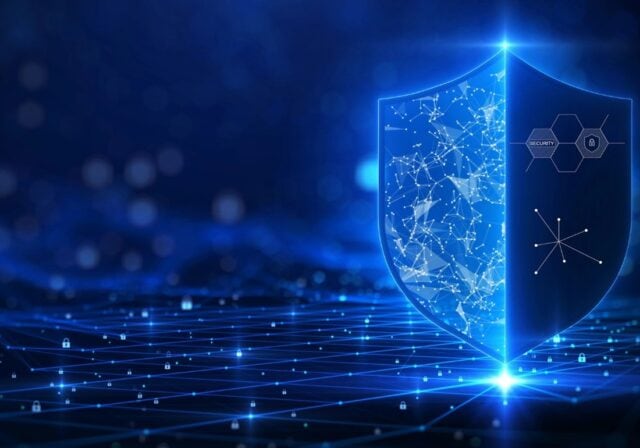So, what about home Wi-Fi? Isn't that safer? It's only as safe as passwords are strong. And strong they are not. In fact, weak credentials were the cause of nearly 70 percent of Wi-Fi security issues, with the rest being caused by vulnerable, unpatched devices with firmware that hasn’t been updated2.
This is where VPNs come in handy.
What is a VPN and how can one help?
A VPN (Virtual Private Network) is a good solution for those who value not only security, but privacy and convenience, too. VPNs work by routing traffic to a server operated by your VPN service of choice and hiding your IP address, which is like a digital version of your return address. Without it, anyone who knows your IP address can access what, when, and where you've searched online. In fact, your entire search history is exposed as soon as you connect to a browser over an unprotected connection, making it a virtual playground for hackers and other bad actors.
How does a VPN protect you on public Wi-Fi?
With a VPN, because your web traffic comes from the VPN's server, your IP address is hidden, making it more difficult to track what you're doing on both public and home Wi-Fi connections. This can help protect you in several ways:
- Your browsing history stays private.
- Your personal information remains secure.
- Your devices are better protected.
How do I get a VPN?
There are several good VPN services out there, but you will have to pay a fee. With better security, however, it's more than worth it. The best VPNs will offer you advanced privacy protection without compromising on performance. So, be sure to do some online research to find the right one for you.
T-Mobile is America’s fastest growing Home Internet provider. Find out if it's available in your area and then try it out for 15 days to see if it works for you.
Learn more about internet security
- Wi-Fi Security: Essential Protections
- Security And Wi-Fi: How Does a VPN Work?
- 101 Guide to Wi-Fi Subnet Masking Networks
Sources:
- https://www.forbes.com/advisor/business/public-wifi-risks/
- https://blog.avast.com/how-secure-is-your-wi-fi-network
Additional Sources:
- https://www.gartner.com/en/information-technology/glossary/ip-address-internet-protocol-address
- https://us.norton.com/blog/privacy/proxy-vs-vpn
- https://surfshark.com/blog/are-vpns-legal
- https://www.fortinet.com/resources/cyberglossary/how-does-vpn-work
- https://us.norton.com/blog/privacy/proxy-vs-vpn
- https://www.gartner.com/en/information-technology/glossary/vpn-virtual-private-network



